Enab Baladi’s investigation team
Race to win the tribes of Al – Hasakah over
Mohammed al-Hilu, the Sheikh of Adwan tribe in Hasakah province, has been away from his home country Syria for less than two years after he was accused of supporting the opposition factions in 2012 and facilitating their entry into the city of Ras al-Ayn, which forced him to leave the country to escape potential extradition by the regime.
However, al-Hilu (Abu Meshaal) was granted a presidential pardon in 2014, under which he returned to al-Hasakah, which is controlled by the “Syrian Democratic Forces”, allegedly loyal to the regime.
The fact that al-Hilu is a sheikh of the tribe does not necessarily mean that its members will follow the same allegiance that he announced. Some of them supported the Democratic Union Party, including his cousin Abdul Razzaq al-Hilu, who has integrated into the “self-management” institutions as one of the senior leaders of the Adwan tribe; whereas some media sought to present him as the Sheikh of the tribe.
According to media sources, relatives of the sheikh of Adwan tribe are affiliated with Syrian opposition institutions abroad.
Perhaps the various allegiances of the people of Adwan, one of the largest Arab tribes in the province of al-Hasakah, constitute a microcosmic illustration of the division witnessed by the tribal community in the province, according to the balance of power and political actors.
With the arrival of the “Islamic State” to the east of Syria, a number of the Arab tribes’ members in the province of al-Hasakah have joined its fighters and announced their allegiance and loyalty, which ISIS exploited via the media to confirm the loyalty of the tribes in Syria.
At the same time, the regime and the Democratic Union Party were also seeking to gain the support of the Arab tribes in al-Hasakah and to promote a media image that confine the allegiance of an entire tribe in the position of one of its residents. It seems that the Kurds played a greater role in this issue given that they are the dominant force on the ground.
From ” loyalty for interest” to loyalty for “truce”
Based on the Adwan tribe leader case, Mohammed El Hilu, it can be said that at the beginning of the revolution he did not facilitate the entry of the opposition factions to the city of Ras al-Ayn in order to support them but rather to preserve the interests of his tribe and to reduce the losses caused by inciting the tribe members into an armed conflict that could lead to dozens of deaths.
What confirms this hypothesis is that al-Hilu had previously served as a member of the People’s Assembly as a representative of al-Hasakah, and was never opposed to the Syrian regime.
The Syrian journalist Ibrahim Habash thinks that “tribes represent an important part of the Syrian social fabric, and the ideological approaches which apply to this fabric were also reflected on the tribes had the same effect in terms of loyalties. Moreover, what is distinctive in the case of tribes is how its members cling to their villages and property.
From this point of view, “the overwhelming loyalty to the tribe is the main motive for granting allegiance to those who control their areas in exchange for their survival as a result of violent perceptions in collective memory that would erase all the limits the tribe has set for its members in case of displacement, and that they will consequently have to pay a high price for that. This is what Habash called “loyalty for interest”.
Because simple military forces have changed to become factions that seek to expand and military movements transformed into military organizations supported by international bodies, some tribes had only one choice left: to show loyalty to the dominant power, in the hope of preserving their existence.
It is here that loyalty for “interest” transforms into loyalty for “truce” with the new soldiers according to Habash who added, “Tribe members made a truce with those who control their villages based on international benediction. “This loyalty for truce brings nothing but the preservation of the villages controlled by these tribes, as was the case with the example of the control of Syria’s Democratic Forces over some tribal areas.”
“Self-management” and attempts to induce the Arab tribes
Despite the division of allegiances within the same tribe, the Arab tribe still has a significant impact on the local community, which explains why the forces on the ground would want the sails of tribal support to go in their direction.
The Democratic Unionist Party won the support of the Sheikh of Shammar tribe, Humaydi Daham al-Hadi al-Jarba when he was appointed as joint governor of Al-Jazira Province in the self-government system as well as a number of officials in the self-governing institutions of the tribes.
Humaydi Daham’s character played a significant role in making him a specific target. In addition to being a member of a family with a history at the national political level, Humaydi managed to establish a “small state project” in the border area between Syria and Iraq and established a military faction, which includes militants from his Shammar tribe, under the name of “Al-Sanadid Forces” to fight alongside the “Syrian Democratic Forces”.
This has made him an important ally and has provided the party with several services, most notably securing the border area with Iraq, where Daham is based and the deployment of his forces is concentrated, in addition to the continued existence of mobilization forces in the Arab regions in favor of “PYD”, which is its military division.
The Democratic Unionist Party is also trying to induce the Arab tribes in the region, which is reflected in the frequent conferences held by party representatives and the “self-management” institutions with the Syrian Al-Jazira tribes’ dignitaries.
However, PYD denies attempts to induce tribal populations systematically and considers that any representation of them in institutions or leadership centers within “self-management” has a national rather than a tribal basis. Hakam Khalu, Al-Jazira province joint chairman, confirmed to Enab Baladi that “representation in the administration is carried out through the national, political, religious and civil society institutions.”
The self-governing institutions include several Arab tribal figures, including the minister of Economy and trade, Fanar al-Akeid who is affiliated with the Shammar tribe.
Self-management institutions have also been able to involve a section of tribe members in federal elections, where Sheikh Humaydi Daham also took part in the campaign to promote, advocate and praise federalism in the media.
Political activist Hasan al-Ali al-Assaf (from the Tayy Arab tribe) played a major role in inviting the Arabs of al-Hasakah “to vote for federalism in order to maintain their political presence.”
Despite some tribal voices that have criticized federalism and called for abandoning its ideology, its calls seemed marginalized compared with tribal members who were involved in the “self-management” project.
In response to a question by Enab Baladi about the people of the tribes who rejected federalism, Hakam Khalu said, “We must distinguish tribes as they are part of society from those who claim to represent the tribe and confiscate its decision. What matters to us is the opinion of society, not the opinion of some people, and in general the view of the community to accept federalism is positive.”
Kurdish clan outside the target
The Democratic Union Party is relying on the Arab tribal mobilization to introduce the Arab component into “self-management” institutions and support its image in the Arab community within al-Hasakah. However, this reliance appears to have less impact on the Kurdish tribes.
The Kurdish community in al-Hasakah area has a long tribal heritage, but tribal influence has recently significantly declined. Activists from al-Hasakah pointed out that, for the Kurds, the family has replaced the clan. When recalled, the clan is no longer associated with its members.
Journalist Ibrahim Habash believes that “the Kurdish parties marginalized the tribes and took control over the role of the organizational structure that brings most of the members of the society together. The Kurdish Democratic Union Party enjoys the confidence of a wide spectrum of Kurds, including the elders of the tribes, who contributed to strengthening this confidence.”
Kurdish tribes in the province of al-Hasakah established their own council in 2013. Since then the tribes played the role of mediator between the “PYD” and the Syrian regime regarding service affairs and other things that needed coordination between the two parties.
Jamal Abdi, the representative of the Gabara tribe in the Kurdish Tribal Council, stressed the consensual role performed by the council. “We play the role of a positive mediator between all the components in al-Hasakah province and we intervene in solving all the problems that occur between all parties, whether with the self-management authorities or the government. We, in the tribal council, do not take sides with any party, and we stand at a distance from all of the parties.”
Abdi denied any political or military role for the council. “We are only a tribal council. We do not interfere with politics and we do not have any military agendas or forces on the ground at all.”
However, the statements he makes and the positions expressed by the Council convey a tendency toward supporting the Democratic Union Party. The Council considers that “the existence of the federation guarantees the unity of Syria and its central capital, Damascus, which has no alternative.” The council also considers that “People’s Protection Units and Women’s Protection Units contribute in the protection of this country and have made sacrifices and heroic actions.”
The most prominent Arab and Kurdish tribes in al-Hasakah
The province of al-Hasakah is 32 thousand square kilometers. Despite the small size of this province, it has a mixture of different races and religions. It is characterized by the existence of a ramified tribal society and the concentration of several tribes.
Most of the tribes in Al-Hasakah are connected to Upper Mesopotamia and neighboring countries and consist of a variety of Arab and Kurdish tribes.
Shammar
It is one of the largest Arab tribes whose influence extends from Saudi Arabia to Syria through Iraq. This tribe is believed to have branches that extend to Iran.
The deceased Syrian historian Turki Ali al-Rabyu pointed out that Shammar is one of the branches of Tayy tribe, but it one that has extended to become a root tribe.
Members of the Shammar tribe exist in Syria on the eastern border with Iraq, and are concentrated in the province of al-Hasakah.
There are no accurate statistics about the number of tribes in al-Hasakah. However, some tribal sources indicated that their number does not exceed 50 thousand.
In spite of all that, the clan was able to play a role in the Syrian political scene and participate through its leader, Daham al-Hadi as the representative of al-Hasakah province within the former People’s Assembly.
Shammar is now considered as the Democratic Union Party’s associate. Humaydi Daham al-Hadi, the leader of the tribe, is the “common ruler of Al- Jazira province where Fanar al-Akeid, the minister of the Supply Authority and Shammar tribe descendent, comes from. They generally receive the attention of self-management authorities.
Tayy
This tribe surrounds Qamishli from all sides, especially since Arab tribal leaders consider this province to be an essential part of Tayy. According to a tribal source in Tayy, the tribe members are about 400 thousand people, divided into 13 tribes.
The Tayy tribe does not have an armed militia but some of its members are fighting alongside the Syrian Democratic Forces, while most of them belong to the regime’s National Defense Forces.
Some of their members are loyal to the self-management authorities, while most of them tend to be loyal to the regime.
Jubur
Are spread in Al-Hasakah and its countryside and reach 350 thousand people, and its most prominent leaders do belong to Musllat Al-Mulhim’s family.
The leaders of this tribe are historically considered as the actual rulers of al-Hasakah. The Musallat’s were politically present in the modern history of Syria as opponents of the regime and representatives of al-Hasakah in the People’s Assembly.
Some of them are regime allegiances now, while others are supporting the opposition. There are no self-government officials from Jubur tribe, and some of their sons are fighting with the “Syrian Democratic Forces”.
Adwan
Are Arab tribes numbering approximately 12 thousand people, according to the historian Turki Ali al-Rubyu, and live in the western and southern parts of the city of Ras al-Ayn.
The name of the tribe’s leader, Mohammed al-Hilu (Abu Meshaal) emerged at the beginning of the Syrian revolution after he helped the opposition factions enter Ras al-Ayn, which led to his departure from Syria for fear of being handed over to the regime. However, Hilu returned in 2014 with a presidential pardon and declared loyalty to the regime.
Gabara
It is one of the largest Kurdish tribes in Syria. Its members are spread in the cities of al-Hasakah and Amuda. 65 Syrian villages belong to this tribe, and there is no accurate information about their numbers.
Dr. Abdul Hakim Bachar, a member of the Kurdish National Council, and a representative in the Supreme Negotiations Committee is the descendent of Gabara tribe.
Dakuri
A Kurdish tribe which is concentrated in the city of Amuda in Qamishli countryside and has several branches, including the family of Silfian and Hajian and others.
Historical references indicate that the Dakuri tribe has historically resisted the French occupation through a number of its own people, such as Salih Aga Dakuri and others.
Miran
Also called “Gochar “, a Kurdish word meaning “Bedouin nomads”, traveling shepherds who spread in Dayrik (al-Malikiyah) and Rmelan. The number of its members is estimated to be from 30 to 40 thousand.
Al-Umryan
Consists of Kurdish groups who migrated from Turkey in the fifties. They are concentrated in the cities of Amuda and Qamishli.
Al-Bakara
Al- Bakara tribe is one of the largest tribes in Syria. It is spread in al-Hasakah, Deir ez-Zor, Raqqa, Aleppo, Idlib, Hama and Daraa.
According to local estimates, the number of its members in al-Hasakah is about 350 thousand, while it is heavily concentrated in Deir ez-Zor.
A large section of al-Bakara clansmen joined the Syrian revolution as it started and participated with the Free Army in several battles. Following the development of the course of events, the tribe was the center of focus, at the international level. Therefore, Iran agreed with the regime to induce Nawaf al-Bashir, one of its prominent leaders, bring him back to Syria and put him in charge of the formation of a “Tribal army” supported by Iranian militias in Qamishli, in order to fight alongside the regime in the North-East of Syria.
A large section of the tribesmen associated with al-Bakara had a different attitude towards it, as a number of officers and military commanders and activists issued at the beginning of last year a statement in which they confirmed their support for the revolution of the Syrian people.
Tribal military influence in Al-Hasakah
“Personal Interest” Militias
Given the nature of the organizational structure of the tribes, it can be said that the military build-up, which is based on tribalism, can have a strong impact on any military conflict and contribute to tilting the balance in favor of the forces next to which the tribal forces are fighting.
However, this is not the case for the Syrian conflict whose nature is different. No military group has emerged as a tribe with an ideological force, and the tribal military forces have confined themselves to small factions that support some military forces or maintain the security of their areas.
Upper Mesopotamia, as a tribal society, might be a clear example of this. Its tribes exported dozens of small military groups that merged into the Syrian Democratic Forces, the National Defense Forces of the regime or ISIS. It is noteworthy that many tribal combatants supported the opposition factions in Al-Hasakah during the second year of the Syrian revolution.
Except for that, independent groups have emerged and formed alliances with Kurdish combatants, such as Al-Sanadid Forces, which are considered as supporting forces of the interests of Shammar tribe’s leader, Humaydi Daham al-Hadi al-Jarba and the Syrian Elite Forces that Ahmad al-Jarba, head of Syria’s Tomorrow Movement, uses as a tool to achieve balance on the ground according to his interests and political affiliations.
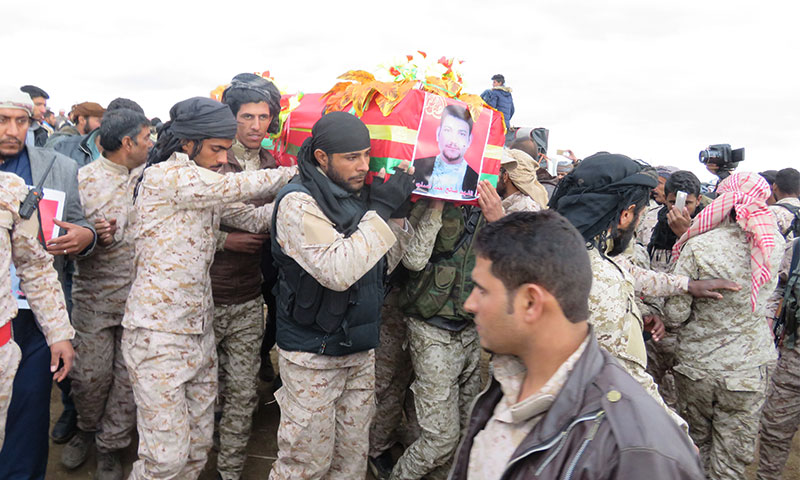
Combatants leading to rest Sufuq Khamis, a combatant in Al-Sanadid Forces, in the town of Tel Koger in Al-Hasakah – February 6, 2017 (ANHA)
Syrian Democratic Forces… Clearing itself of the suspicion of nationalism with Arab tribalism
The Syrian Democratic Forces have adopted alliances with several Arab tribal forces, and through tribal sheikhs, they have sought to recruit some Arab combatants in their ranks. This serves their image as a military formation which includes combatants from all components of Upper Mesopotamia, and does not limit itself to Kurds, although they represent the vast majority of its combatants.
However, Rêzan Gelo, the joint head of The Self-Defense Authority of Al-Jazira province, denies that the Kurds are the largest force in the Syrian Democratic Forces and considers that “half of them have become Arab and of all tribes and we exclude no one except those who support the Syrian regime, while the Arab community has joined the Syrian Democratic forces from all tribes.
Despite this, relations did not properly continue between the Syrian Democratic Forces and the Arab tribal factions that allied with them, but this alliance was affected by differences in projects and the sense of mutual exploitation between the two sides.
These clashes are reflected in the conflicts that publicly surfaced between the Syrian Democratic Forces and the Syrian Elite Forces in the battle for taking control over the city of Raqqa, which led to the Syrian Elite Forces’ withdrawal from the Syrian Democratic Forces during the summer of last year.
As for Al-Sanadid Forces, although they are still in the Syrian Democratic Forces, their relationship is prevailed by sensitivities. Some voices within the Syrian Democratic Forces have started to object to Al-Sanadid Forces’ policy in “trying to earn greater gains on the ground, and not only achieving the protection of the Shammar areas.
Some of The Syrian Democratic Forces’ combatants also accuse Al-Sanadid Forces of distributing identity cards to wanted recruiters in the People’s Protection Units, which exempts them from being recruited and increases the number of Al-Sanadid Forces members in the lists of the Syrian Democratic Forces.
With this, the tribe-based state of the Syrian Democratic Forces may turn into a “curse”, especially with the expansion of its control area in the two countrysides of Deir ez-Zor and Aleppo, where the Arab tribes are concentrated, amid fears of forming Arab tribal alliances that might harm the organizational structure of the Democratic Unionist Party’s military wing.
ISIS and then the regime… Two refuges for the Arab tribes
With the expansion of ISIS’s influence after 2014 in the region of Upper Mesopotamia, members of the Arab tribes in Al-Hasakah had no choice other than “pleading allegiance” to ISIS or forming local factions to fight against it alongside with the Syrian Democratic Forces.
Journalist Ibrahim Habash points out that “a section of tribal people, as individual cases, joined ISIS as a response to the Kurdish Democratic Union Party militias burning of a number of Arab villages and displacement of its people.”
On the other hand, some members of the Arab tribes have joined the National Defense Forces, which is a backbone of the regime’s forces, and is concentrated in some points within the cities of Al-Hasakah and Qamishli.
There are talks about the formation of a new tribal military group in Al-Hasakah, which would be led by Nawaf al-Bashir, the Sheikh of Bakara tribe, who split from the ranks of the Syrian opposition, to return to Damascus and declared his allegiance to the regime.
The formation of this group has not yet been announced. However, identical sources, which Enab Baladi has previously checked, confirmed that the group would begin fighting alongside the regime forces at the beginning of this year.
The sources point out that the training of the group is continuing by leaders of the Popular Mobilization Forces coming from Iraq, in camps in the mountain of Kawkab, the Security Belt and Brigade 156, which are regime-controlled locations in Al-Hasakah Governorate.
Based on that, the Syrian Democratic Forces’ chances of attracting Arab tribes in Upper Mesopotamia seem to be rapidly declining. This is linked to the regime’s entry into the state of war against ISIS since mid-last year and the emergence of the Syrian opposition’s Revolutionary Commando Army faction in Deir ez-Zor under the support of the International Coalition.
Al-Sanadid Forces
Al-Sanadid Forces were established in 2013 by some members of the Arab Shammar tribe. Its combatants are concentrated in the areas of Tel Hamees and Tel Koger in the countryside of Al-Hasakah.
Al-Sanadid Forces joined the Syrian Democratic Forces at the beginning of the latter’s establishment in 2015, and participated with them in several battles.
Its founder, Humaydi Daham al-Hadi al-Jarba, is considered one of the most prominent tribal leaders in Al-Hasakah. He the joint commander of Al-Jazira Province and the cousin of Ahmad al-Jarba, commander of the Syrian Elite Forces.
Al-Sanadid Forces participated in Operation Euphrates Anger led by the Syrian Democratic Forces, but did not participate in the battles for Raqqa.
Activists estimate the total number of Al-Sanadid Forces members to be 1,000 combatants. Their role is considered to be often related to the protection of oil wells in the border area with Iraq.
It is to be noted that Al-Sanadid Forces are dedicated to protecting the “dream of the Emirate of Humaydi Daham”, who seeks to consolidate and expand his influence and achieve a large tribal leadership relying on oil as a means to strengthen his financial resources.
Syrian Elite Forces
The Syrian Elite Forces are affiliated to Syria’s Tomorrow Movement headed by Ahmad al-Jarba, cousin of Humaydi Daham of the Arab Shammar tribe.
The Syrian Elite Forces were founded in 2016 and have a total of three thousand combatants, according to what al-Jarba stated in a press interview on February 2017. However, the forces had been subjected to splits that led to the infiltration of a number of their factions into The Syrian Democratic Forces.
The Syrian Elite Forces operate under the wing of the International Coalition against ISIS. Ahmad al-Jarba is also a close ally of Saudi Arabia and has the support and praise of the US Department of Defense for “his ability to mobilize local forces” in support of the battle for the control over Raqqa, last summer.
Al-Jarba asserts that his forces receive logistical support from US forces leading the International Coalition, noting that the US role does not extend to arming or providing funds.
if you think the article contain wrong information or you have additional details Send Correction
النسخة العربية من المقال
-
Follow us :











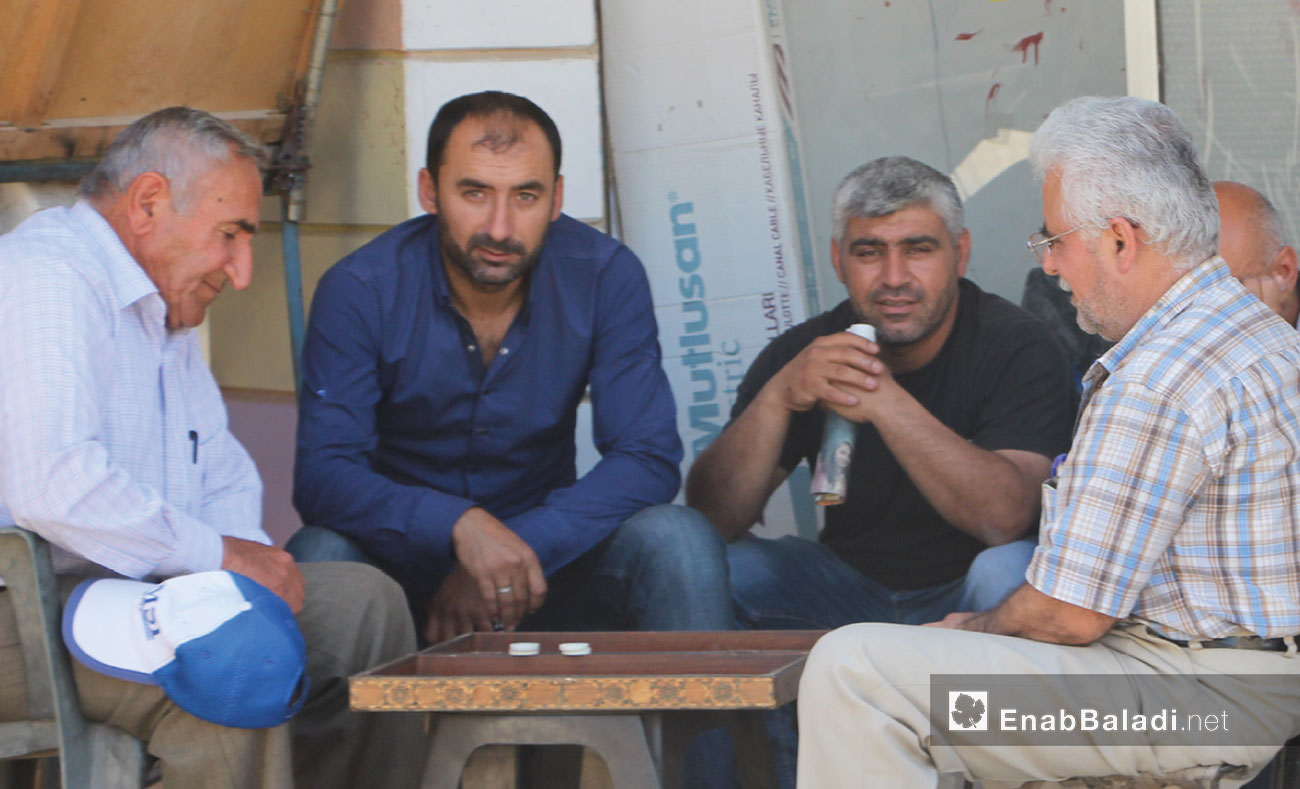
 Men playing board game in one of the city of Qamishli’s neighborhoods - May 17, 2017 (Enab Baladi)
Men playing board game in one of the city of Qamishli’s neighborhoods - May 17, 2017 (Enab Baladi)





 A
A
A
A
A
A

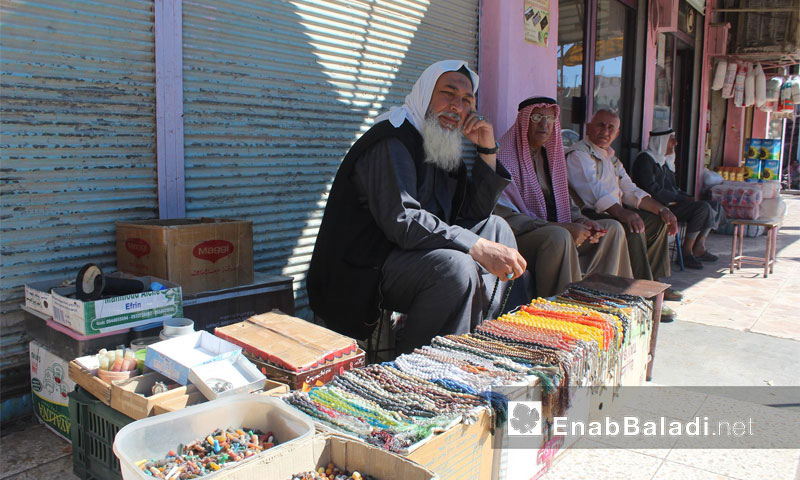
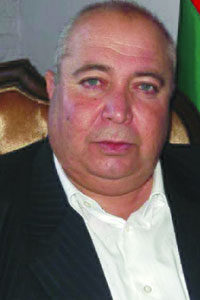
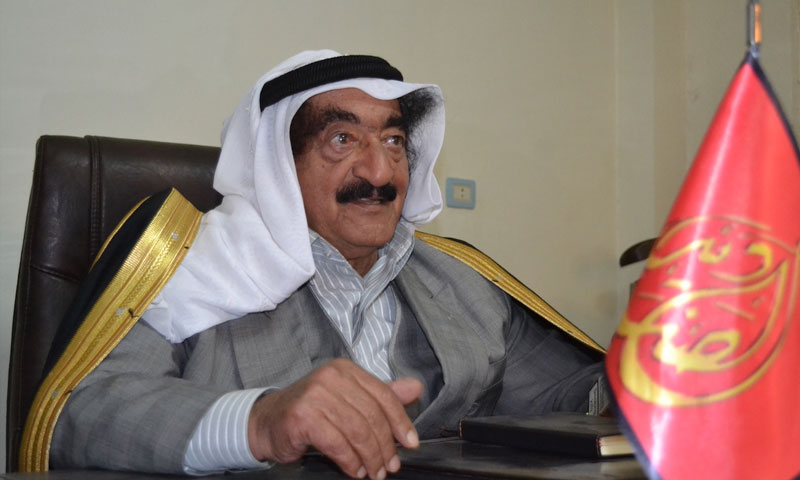
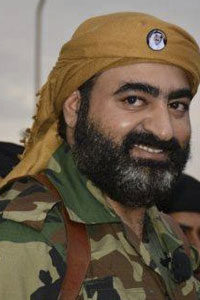
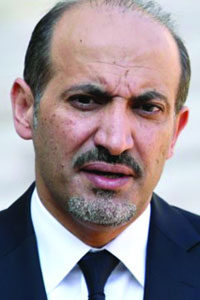


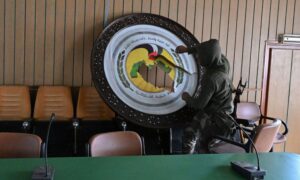
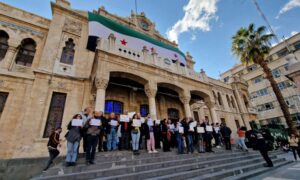
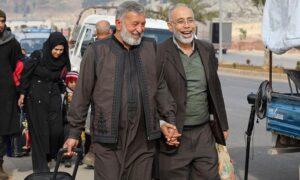

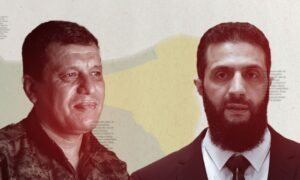
 More In-Depth
More In-Depth